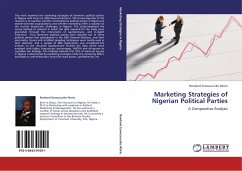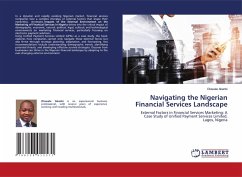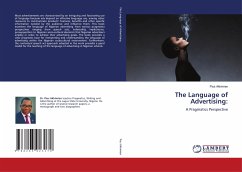
Marketing Strategies of Nigerian Political Parties
A Comparative Analysis
Versandkostenfrei!
Versandfertig in 6-10 Tagen
52,99 €
inkl. MwSt.

PAYBACK Punkte
26 °P sammeln!
This work examines the marketing strategies of dominant political parties in Nigeria with focus on 2003 General Elections. The broad objective of the research is to examine whether contemporary political parties in Nigeria are market-oriented organizations; and whether marketing offers a solution to the current democratic challenges in Nigeria. The study employed the survey method of research in which the data required for the study were generated through the instruments of questionnaire, and in-depth interviews . Four dominant political parties were selected out of thirty political parties th...
This work examines the marketing strategies of dominant political parties in Nigeria with focus on 2003 General Elections. The broad objective of the research is to examine whether contemporary political parties in Nigeria are market-oriented organizations; and whether marketing offers a solution to the current democratic challenges in Nigeria. The study employed the survey method of research in which the data required for the study were generated through the instruments of questionnaire, and in-depth interviews . Four dominant political parties were selected out of thirty political parties that participated in the 2003 General Elections, and their electorates. Quota and stratified sampling techniques were mostly used in their selection; and a sample of 800 respondents was considered.The answers to the returned questionnaire formed the data which were analyzed with tables, frequencies, percentages, ANOVA and chi-square to crystallize the findings. The findings indicate that 52% of electoral success in Nigeria is determined by marketing strategies while the remaining 48% is ascribable to anti-democratic forces like state power, godfatherism, etc.












